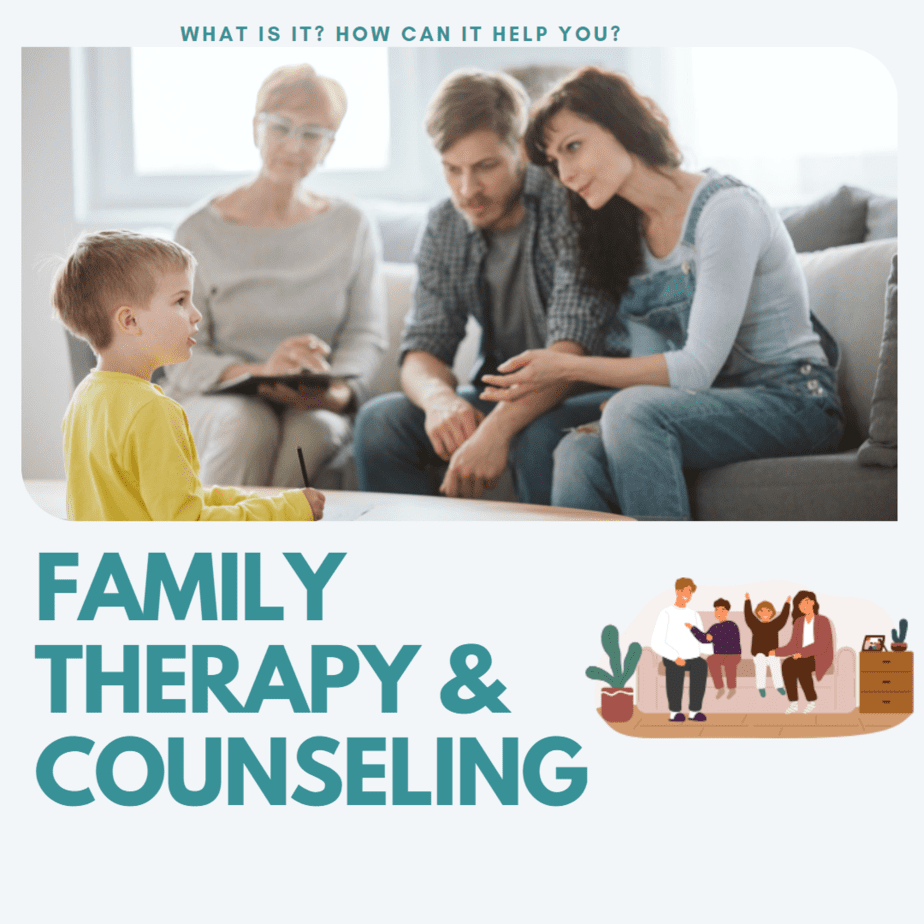Family therapy or family counseling is essentially designed to address certain factors that may be affecting the psychological well-being of family members. These factors or concerns may stem from major life transitions, health conditions, substance abuse, financial situations, or other emotionally or mentally triggering events. Family therapy may include the immediate nuclear family comprising of the parents and their children, stepfamily, or extended family, respectively depending on the causes that are making the family seek counseling. It is a mechanism that can help you maintain a healthy and functional family life and relationships.
Family Therapy and Counseling: What Is It & How It Can Help You
If you believe your family is struggling or hasn’t been able to address any pressing issues lately, you may have to consider seeking therapy for you and your family members to address anything that may be troubling all of you as a unit. While doing so, you should be looking for a family therapist that has adequate experience and academic qualification and at least has a Doctorate in Marriage and Family Therapy. Your family is your haven, and you shouldn’t put the mental and dynamic health of your family in the hands of an amateur.
What are the benefits of family therapy?
The three main goals concerning family therapy and counseling include improving communication, addressing familial problems, and creating a functional home environment and life. Anything that may be considered the opposite of the above three goals could lead to mental health problems in family members, interpersonal conflict, behavioral problems in adolescents, and the eventual breaking apart of your family as a unit. This is why family therapy is essential. Given below are some of the benefits of family therapy and counseling:
Family Therapy helps improve family dynamics
Your family dynamics essentially cover the existing patterns of communication amongst family members. Once these patterns turn unhealthy, they can take years to reverse on your own, and hence the intervention and guidance of a third party or a family therapist are of utmost importance. Family therapy helps members realize and acknowledge the flaws in the communication patterns, and introduces them to more efficient and healthy ways of interaction. Examples of poor family dynamics include holding grudges, yelling, threatening, and not communicating true feelings. In contrast, examples of good family dynamics include respecting each other’s viewpoints, spending quality time together, and being honest about one’s feelings.
Family Therapy is a source of support during major life transitions
Some of the most taxing phases of your family life would be when your family is going through a major transition. Life transitions can be both positive and negative, but even the former can leave negative effects on your family members’ mental health. Some of the major life transitions include separation, divorce, relocation, death, or empty nesting, which can cause a major upheaval in your family members’ relations. In such cases, family therapy can help members adjust to their new living conditions, and help them deal with grief, acceptance, and communication.
Family Therapy helps improve communication
People tend to underestimate the value of good communication amongst family members and large groups. In contrast, good communication is all the more important in such units due to the probability of misunderstanding and conflict being high. Families in which members tend to keep their feelings to themselves and do not speak their minds tend to be heavily influenced by communication problems and subsequent conflict. A large part of family therapy sessions constitutes the establishment of safe and healthy communication patterns amongst members.
It is important to note that communication and family dynamics are two different things and two completely separate benefits of family therapy: the former deals with actual speech patterns and the sharing of thoughts, whereas the latter deals with overall family demeanor.
Family Therapy can help improve mental health
An extended period of poor family dynamics and relationships can lead to significant mental health issues amongst certain family members, especially children. Children are more susceptible to such issues as often they tend to associate themselves with the cause of all family troubles. Over time, this may also cause them to lose self-esteem. However, family therapy can help individuals outlive some of their past trauma, and successfully diagnose and treat any underlying mental problems.
Family Therapy can help keep your family intact
If you often yourself envying the families on TV which sit and have their breakfast together every morning and discuss respective school and work happenings, or if yourself wondering whether your family would ever hold annual get-togethers, Christmas and Thanksgiving dinners, and vacation together, chances are that your family may not be very intact. Families that undergo therapy and counseling have higher chances of staying intact, staying in touch, and forming real connections that are likely to last them a lifetime. Family therapists introduce families to new ways of hanging out together and suggest different activities that can be done to engage all family members.
Conclusion
Family therapy and counseling are crucial if you wish to maintain healthy relationships within your family. Your family is your lifeline, and you and other members should do everything they can to hold onto it and improve your family dynamics and home environment, and getting therapy is the right way to do so.
